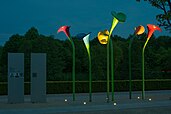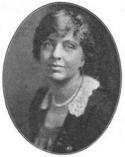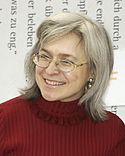Wikipedia:Main Page history/2022 October 7
From today's featured article
From the late 19th century until 1933, the first homosexual movement unsuccessfully sought the repeal of Paragraph 175, a German law criminalizing sex between men. In 1897, Magnus Hirschfeld founded the Scientific-Humanitarian Committee—the world's first homosexual rights organization—to achieve this goal through science. The movement greatly expanded after World War I and the German revolution, when the first mass-market periodicals for gay people were published. The German Friendship Society and the League for Human Rights, founded after the war, emphasized human rights and respectability politics. In 1929, the German parliament considered but ultimately did not vote on a proposal to decriminalize homosexuality. The movement waned after failing to achieve its objectives, and was shut down after the Nazi takeover in early 1933. The first homosexual movement has inspired and influenced later LGBT movements. (Full article...)
Did you know ...
- ... that American environmentalist Rosalie Edge (pictured) was called "the only honest, unselfish, indomitable hellcat in the history of conservation"?
- ... that the dominant species in the Iron-grass Natural Temperate Grassland of South Australia are often not grasses at all?
- ... that a pink skin for Mercy in the video game Overwatch helped raise more than $12 million for breast cancer research?
- ... that in 2005, the Philippine embassy in Paris regularly had a flooded basement due to a lack of funds?
- ... that medievalist Edward Rand rang the doorbell of Harvard president Charles William Eliot and asked him: "I would like to go to Harvard; do you have any money?"
- ... that academic Kohei Saito describes the Sustainable Development Goals as the "new opium of the masses" in his 2020 Marxist book, Capital in the Anthropocene?
- ... that Nick Kerbawy did not receive his college tennis championship trophy until 14 years after winning it?
- ... that the dining room at Ardress House has no internal doors and can only be reached using an external entrance?
In the news
- At least 38 people, mostly children, are killed in an attack at a nursery in Nong Bua Lamphu province, Thailand.
- Svante Pääbo (pictured) is awarded the Nobel Prize in Physiology or Medicine for his work on human evolutionary genetics.
- Ethiopian Yalemzerf Yehualaw and Kenyan Amos Kipruto win the London Marathon women's and men's races.
- In motorsport, Kalle Rovanperä wins the World Rally Championship, becoming its youngest champion at 22 years old.
On this day
- 1800 – The French privateer Robert Surcouf led a 150-man crew to capture the 40-gun, 437-man East Indiaman Kent.
- 1868 – Ōdate, the last castle of the Satake clan in Japan's Tōhoku region, was captured during the Boshin War.
- 1878 – The state funeral of Mindon Min, who ruled Burma for 25 years, was held.
- 1914 – Japan captured Pohnpei from Germany, eventually leading to large-scale Japanese immigration to Micronesia.
- 2006 – Anna Politkovskaya (pictured), a Russian journalist and human-rights activist, was assassinated in the elevator of her apartment block in Moscow.
- Guru Gobind Singh (d. 1708)
- Marie Lloyd (d. 1922)
- Helmut Lent (d. 1944)
From today's featured list
The prime minister of New Zealand is the country's head of government and the leader of the Cabinet, whose powers and responsibilities are defined by convention. Officially, the prime minister is appointed by the governor-general, but by convention, the prime minister must have the confidence of the House of Representatives. Originally, prime ministers headed loose coalitions of independents, which were often unstable; since the advent of political parties, the prime minister is usually the leader of the largest political party in the House. Some historians regard James FitzGerald as New Zealand's first prime minister, although a more conventional view is that neither he nor his successor (Thomas Forsaith) should properly be given that title, as New Zealand did not yet have responsible government when they served. Most commonly, Henry Sewell, who served during 1856, is regarded as New Zealand's first premier. Beginning with Sewell, forty individuals have so far held the premiership. The incumbent prime minister is Jacinda Ardern, who assumed office on 26 October 2017. (Full list...)
Today's featured picture

|
|
The Alcázar of Segovia is a medieval castle located in the city of Segovia in Castile and León, Spain. Rising out on a rocky crag above the confluence of two rivers near the mountains of Guadarrama, it is one of the most distinctive castle-palaces in Spain by virtue of its shape, resembling the bow of a ship. The alcázar was originally built in the 11th or 12th century by the Almoravid dynasty as a fortress, but has since served as a royal palace where twenty-two kings reigned, a state prison, a royal artillery college, and a military academy. The castle overlooks a valley with the Eresma River and is a symbol of the old city of Segovia. It was declared a UNESCO World Heritage Site in 1985. Today, the alcázar is used as a museum and a military archives building since its declaration as a national archive by royal decree in 1998. Photograph credit: Rafa Esteve
Recently featured:
|
Other areas of Wikipedia
- Community portal – The central hub for editors, with resources, links, tasks, and announcements.
- Village pump – Forum for discussions about Wikipedia itself, including policies and technical issues.
- Site news – Sources of news about Wikipedia and the broader Wikimedia movement.
- Teahouse – Ask basic questions about using or editing Wikipedia.
- Help desk – Ask questions about using or editing Wikipedia.
- Reference desk – Ask research questions about encyclopedic topics.
- Content portals – A unique way to navigate the encyclopedia.
Wikipedia's sister projects
Wikipedia is written by volunteer editors and hosted by the Wikimedia Foundation, a non-profit organization that also hosts a range of other volunteer projects:
-
Commons
Free media repository -
MediaWiki
Wiki software development -
Meta-Wiki
Wikimedia project coordination -
Wikibooks
Free textbooks and manuals -
Wikidata
Free knowledge base -
Wikinews
Free-content news -
Wikiquote
Collection of quotations -
Wikisource
Free-content library -
Wikispecies
Directory of species -
Wikiversity
Free learning tools -
Wikivoyage
Free travel guide -
Wiktionary
Dictionary and thesaurus
Wikipedia languages
This Wikipedia is written in English. Many other Wikipedias are available; some of the largest are listed below.
-
1,000,000+ articles
-
250,000+ articles
-
50,000+ articles




